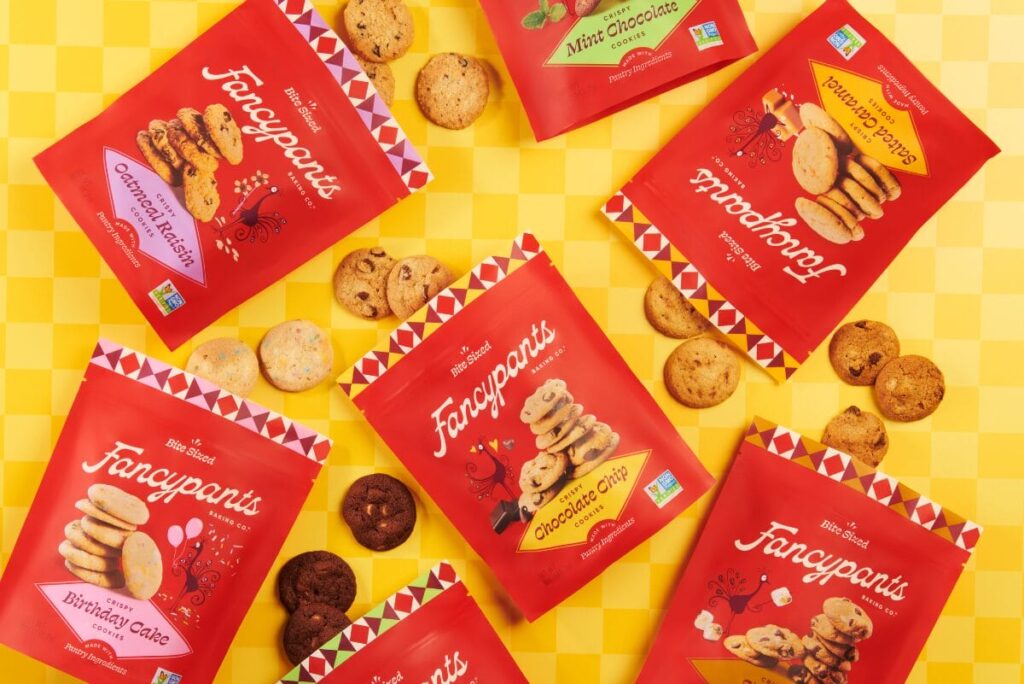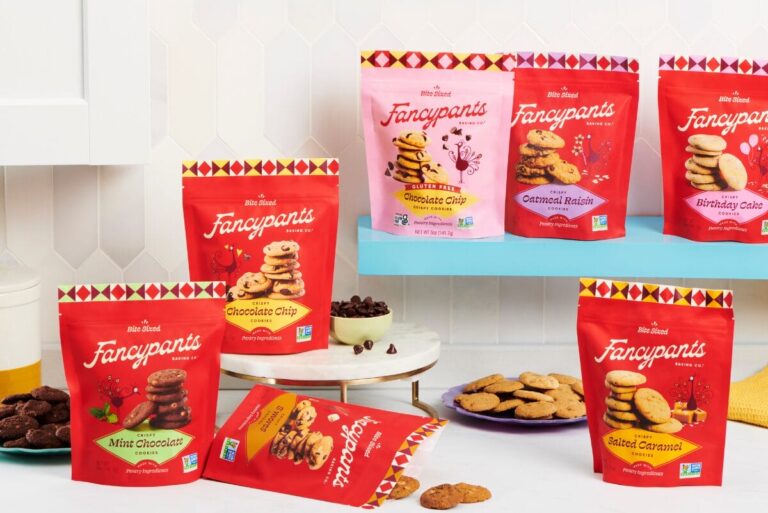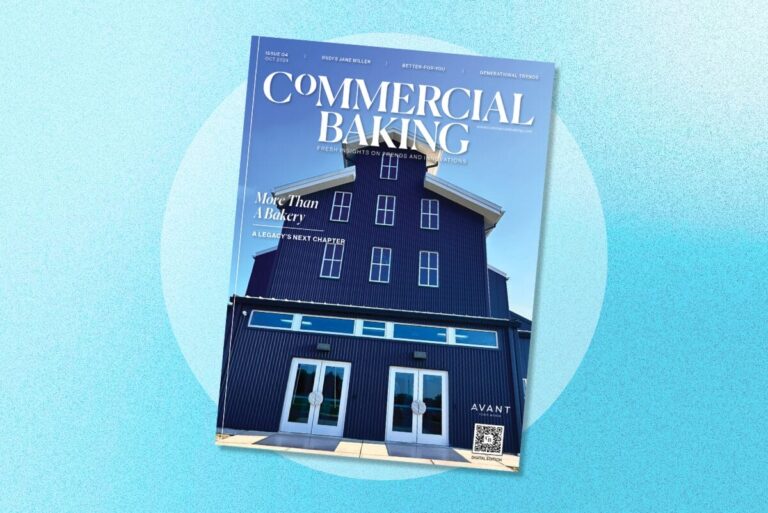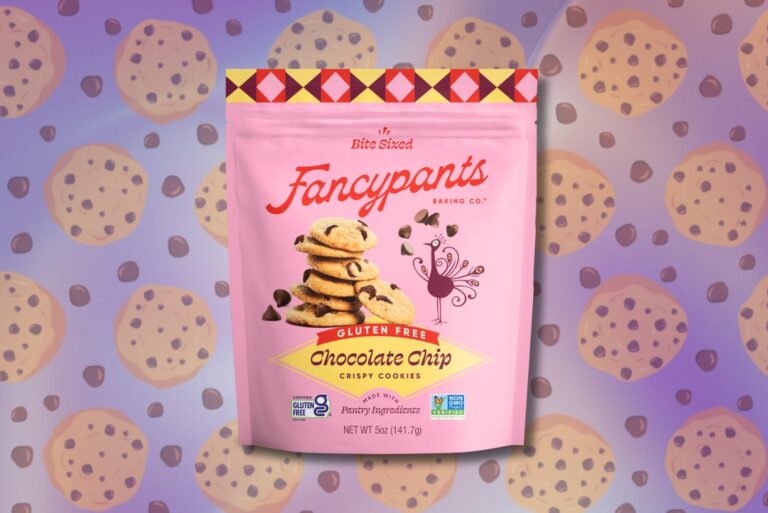BOSTON — To set itself apart, Boston-based Fancypants Baking Co. focuses on creating cookies with a homemade taste and committing to sustainability. The products cater to the notion that when most consumers eat a cookie, they want it to be an indulgent experience. While cookies can be seen as a splurge, Fancypants starts with the basic cookie ingredients — butter, sugar, flour — and avoids additives or preservatives.
The emerging brand also accommodates consumers who actively look for snacks that reduce environmental impact. Fancypants donates its cookie waste — crumbs, dropped and burnt product — to Vanguard Renewables, a company dedicated to transforming organic waste into renewable natural gas.
“It powers the local farms, housing and other businesses in the community,” explained Maura Duggan, founder and CEO of Fancypants. “We’ve partnered with Vanguard for a few years now, and it’s amazing because [our waste] is going to something that helps the environment and is not just being brought to a dump.”
The brand is also active with sustainability initiatives through mindful packaging and upcycled ingredients such as oat flour, which is derived from the pulp left after making oat milk. By baking with upcycled oat and okara flour, Fancypants diverted enough greenhouse gas emissions to charge 2.7 million cell phones and saved 25 million gallons of water in one year.










